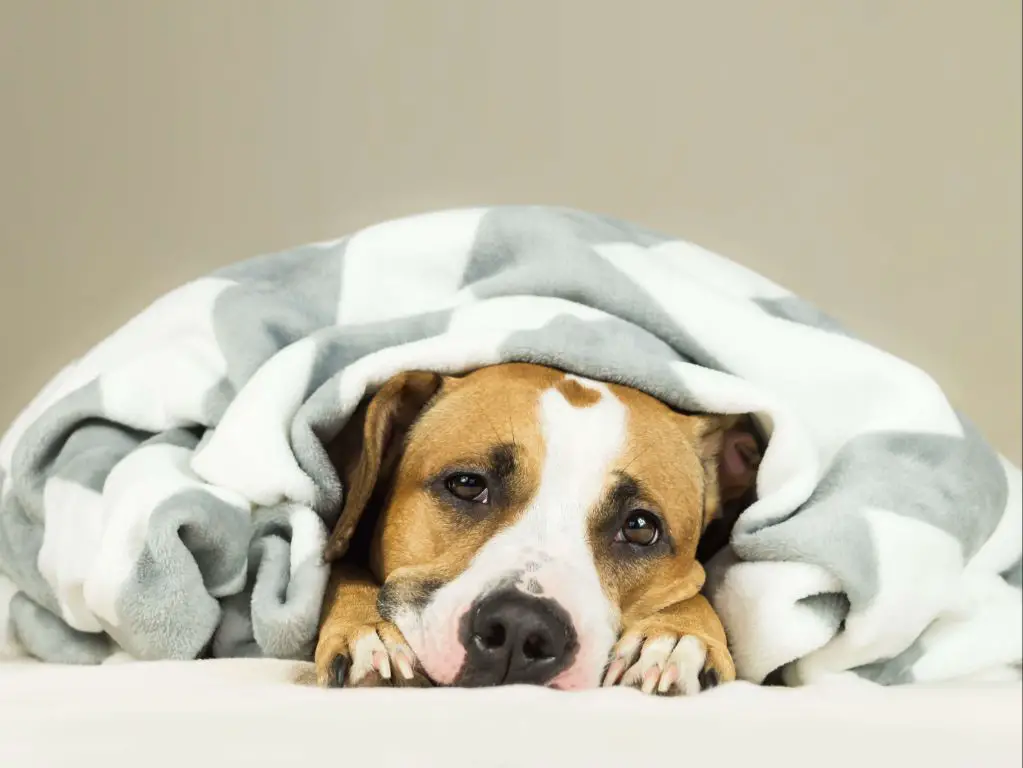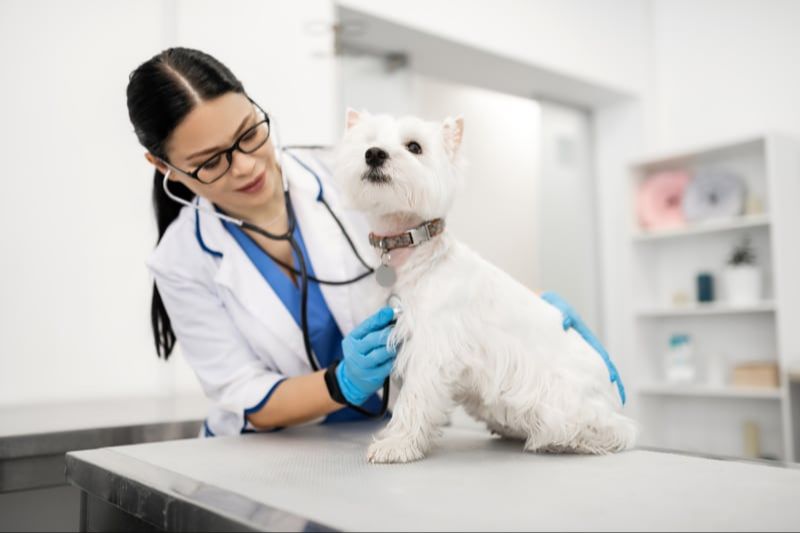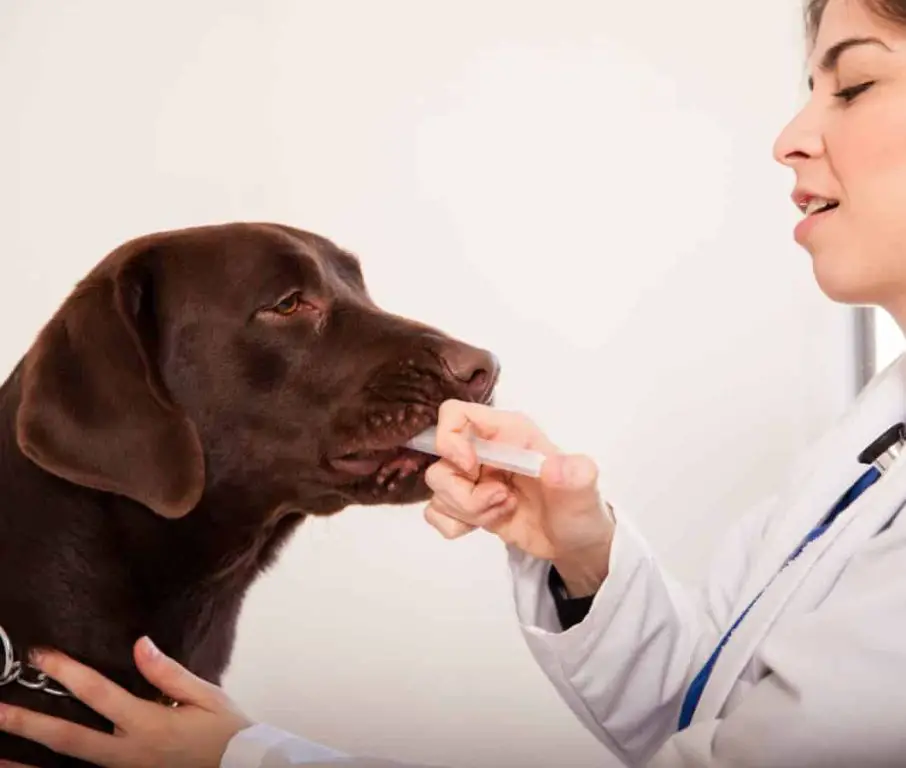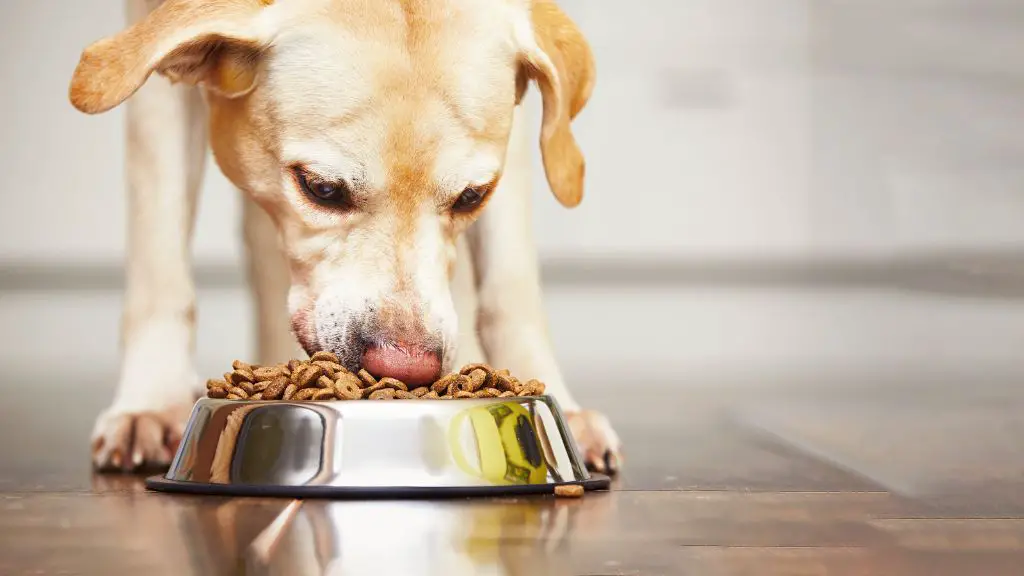Introduction
If your dog suddenly has a cold nose and loses interest in food, this should raise some concerns. A cold nose paired with lack of appetite points to an underlying health issue. Dogs normally have warm, wet noses since they use them to explore the world. A cold, dry nose indicates disrupted blood flow or nerves. Appetite changes also signify a problem, as dogs are usually excited to eat. When these two symptoms emerge together, it signals your dog is feeling unwell for some reason.
There are many possible explanations for your dog having a cold nose and not eating. It could be something relatively minor like a digestive upset. However, more serious conditions like kidney disease, cancer, and heart conditions can also present this way. As a caring pet owner, you will want to identify the cause and get treatment to relieve your dog’s discomfort and restore their health.
Possible Causes
There are several potential medical reasons why a dog may have a cold nose and loss of appetite:
-
Infection – Bacterial or viral infections, such as kennel cough or canine influenza, can cause fever and suppressed appetite.
-
Dental disease – An oral infection from plaque, gingivitis or abscessed teeth may make eating painful.
-
Gastrointestinal issue – Vomiting, diarrhea, constipation, or inflammatory bowel disease can lead to anorexia.
-
Kidney disease – Nausea from kidney failure can cause inappetence.
-
Liver disease – Conditions like cholangiohepatitis reduce appetite.
-
Cancer – Tumors and cancers, like lymphoma, negatively impact appetite.
-
Medication side effects – Some drugs, like antibiotics, may cause loss of appetite.
-
Metabolic disorder – Diseases like diabetes mellitus or Cushing’s disease affect hunger.
-
Toxin ingestion – Eating toxic substances can cause vomiting and appetite loss.
-
Pain – Arthritis, bone cancer, back injury, etc. may make eating uncomfortable.

Fatigue or weakness from illness can also play a role in appetite decrease.
When to See the Vet
If your dog is showing any of the following signs, you should contact your vet right away:
-
Not eating for more than 24 hours
-
Vomiting and/or diarrhea
-
Lethargy or lack of energy
-
Difficulty breathing
-
Coughing or gagging
-
Loss of appetite
-
Weight loss
-
Pale gums
-
Fever
-
Jaundice (yellowing of gums, skin or eyes)
-
Hunched posture
-
Difficulty standing up or walking
A cold wet nose along with any of these other symptoms could signal an underlying health issue that requires prompt veterinary attention. Don’t try to wait it out at home if your dog seems ill – it’s always better to be safe than sorry when it comes to your pet’s health.
Diagnostic Tests
If your dog has a cold nose and is not eating, the vet will perform a full physical exam and take the dog’s temperature, pulse, respiration rate, and blood pressure. They will check the dog’s gums and hydration status.

Diagnostic tests the vet may recommend include:
-
Complete blood count (CBC) – checks for infection, inflammation, and anemia.
-
Chemistry panel – evaluates organ function, electrolyte levels, and more.
-
Urinalysis – detects dehydration, kidney issues, or urinary tract infection.
-
Fecal exam – identifies gastrointestinal parasites.
-
X-rays or ultrasound – helps visualize abdominal issues or foreign objects.
-
Endocrine tests – rule out thyroid or adrenal gland disorders.
Based on exam findings and diagnostic results, the vet can determine the underlying cause and recommend appropriate treatment.
Treatment Options
There are several potential treatments a veterinarian may prescribe for a dog with a cold nose who has stopped eating:
Medications. Vets may prescribe antibiotics to treat a bacterial infection that could be causing loss of appetite and lethargy. Antibiotics commonly prescribed for sick dogs include amoxicillin, doxycycline, and clindamycin. Anti-nausea medication such as Cerenia may also help stimulate appetite.

IV fluids. If the dog is dehydrated, the vet may administer intravenous fluids to restore hydration and electrolyte balance. This can provide support while the underlying illness is treated.
Appetite stimulants. Drugs like cyproheptadine hydrochloride (Periactin) or mirtazapine (Mirataz) may be prescribed to stimulate appetite. These are given for short periods until appetite returns on its own.
Dietary therapy. Vets may recommend switching to a bland, easily digestible diet like boiled chicken and rice until the dog’s appetite returns. Warming the food to bring out aroma can also stimulate appetite.
Vitamin supplements. Vitamin B complex supplements can sometimes boost appetite and energy levels in dogs. Vets may also prescribe vitamin supplements to correct any deficiencies.
If an underlying condition like kidney disease, cancer, or dental disease is the cause, the vet will prescribe treatment specific to that diagnosis. With supportive care and treatment of the underlying condition, most dogs with reduced appetite and cold noses will make a full recovery.
At-Home Care
There are several things you can do at home to help care for your dog if he has cold-like symptoms and loss of appetite:
– Make sure your dog has easy access to fresh, clean water at all times to avoid dehydration.
– Offer small, frequent meals of your dog’s normal food warmed up to bring out the aroma and make it more appealing.
– Try adding low-sodium chicken or beef broth to your dog’s kibble to enhance taste.
– Hand feed tasty morsels like boiled chicken, scrambled eggs, or canned dog food to encourage eating.
– Avoid giving dairy products, which can cause upset stomach.
– Consider adding probiotics or nutritional supplements to support your dog’s digestion and immune system.
– Keep your dog warm and comfortable by providing soft bedding away from drafts.
– Use a cool mist humidifier to ease breathing congestion.
– Gently wipe away any nasal discharge to keep nostrils clear.
– Monitor your dog’s symptoms and contact your vet if condition worsens or fails to improve within a couple days.
Diet and Nutrition
Proper nutrition is extremely important when your dog has a cold nose and loss of appetite. Their calorie intake may be drastically reduced, so it’s critical to tempt them to eat with delicious, aromatic foods.

Try warming up canned dog food to bring out the aroma and make it more appealing. You can even mix in a bit of low-sodium chicken or beef broth or canned pumpkin to enhance flavor.
Feed smaller, more frequent meals and offer high-calorie supplements between them. Foods like scrambled eggs, plain yogurt, cooked oatmeal, and cottage cheese can provide nutrients without upsetting your dog’s stomach.
Avoid overly fatty foods, and stick to their normal daily calorie intake split into smaller portions.track their intake and body weight. If weight loss becomes significant, speak to your vet about formulas made for convalescing dogs.
Keep fresh water available at all times, and encourage drinking by adding broth or ice cubes to their bowl. Proper hydration supports the immune system.
Monitor ingredients to avoid possible allergens. Discuss customized supplementation with your vet if needed.
A nutritious diet supports your dog’s recovery and maintains their health during illness. Work closely with your vet to meet their special dietary needs.
Prevention
There are several things you can do to help prevent your dog from developing cold symptoms accompanied by loss of appetite in the future:
-
Keep your dog up-to-date on vaccinations. Certain viruses like canine distemper and parainfluenza can cause upper respiratory infections leading to cold symptoms. Vaccines can help prevent infection.
-
Avoid exposure to other sick dogs when possible. Upper respiratory infections are highly contagious between dogs, so limiting contact with infected dogs reduces risk.
-
Don’t allow your dog to drink from shared water sources like bird baths, ponds, or puddles which can harbor bacteria and viruses.
-
Maintain good hygiene and sanitation in your home and yard. Disinfect food and water bowls regularly and clean up dog waste promptly to prevent spread of illness.
-
Ensure your dog gets adequate exercise. Regular activity keeps the immune system healthy and infection-fighting.
-
Feed a high-quality diet with nutrients that support immune function like vitamin C, zinc, and omega-3 fatty acids.
-
Avoid exposure to irritants and toxins like cigarette smoke that can inflame airways and increase infection risk.
-
Use flea, tick, and heartworm prevention medications as directed by your vet.
-
Avoid overexertion or extreme temperature exposure during exercise.
Staying up-to-date on preventative care, maintaining good health and hygiene, avoiding irritants, and limiting exposure to contagious dogs can all help reduce the chances of your dog developing upper respiratory infections that lead to appetite loss and cold symptoms.
Prognosis
The prognosis for a dog with a cold nose and lack of appetite largely depends on the underlying cause. With proper veterinary care and at-home treatment, many dogs can make a full recovery.
If the cause is a simple upper respiratory infection, the prognosis is excellent with treatment. Most viral infections will resolve on their own within 7-10 days. Bacterial infections may take 10-14 days to clear with antibiotics.
For diseases like kidney failure, cancer, or other systemic illnesses, the prognosis is more guarded. However, dogs can still live a good quality of life with proper management of the disease. With treatment, these dogs may live months or even years depending on the severity and response to therapy.
The key is to identify and address the underlying issue as soon as possible. Early intervention greatly improves the outlook. It’s important to follow up regularly with the veterinarian to monitor response to treatment.
With attentive at-home nursing care, a cold nose and lack of appetite will often resolve on its own. However, if symptoms persist or the dog seems overly distressed, take them back to the vet for reevaluation.
When to Contact the Vet Again
Contact your veterinarian again if your dog’s symptoms worsen or do not improve within 2-3 days of initial treatment. Specific reasons to follow up include:
- Your dog is still not eating or drinking after 2-3 days
- Vomiting or diarrhea develops or persists
- Your dog seems lethargic, depressed, or non-responsive
- You notice additional concerning symptoms like weight loss, labored breathing, or pale gums
- Your dog’s nose remains cold and wet despite other treatments
- The medications or supplements recommended by your vet do not seem to be helping
- Your dog’s symptoms disappear but then return again after treatment ends
Be prepared to provide your vet with an update on your dog’s symptoms, any treatments you’ve tried at home, and how your dog has responded. Additional exams, tests, or medications may be needed to pinpoint the underlying cause and get your dog back to feeling like himself again.